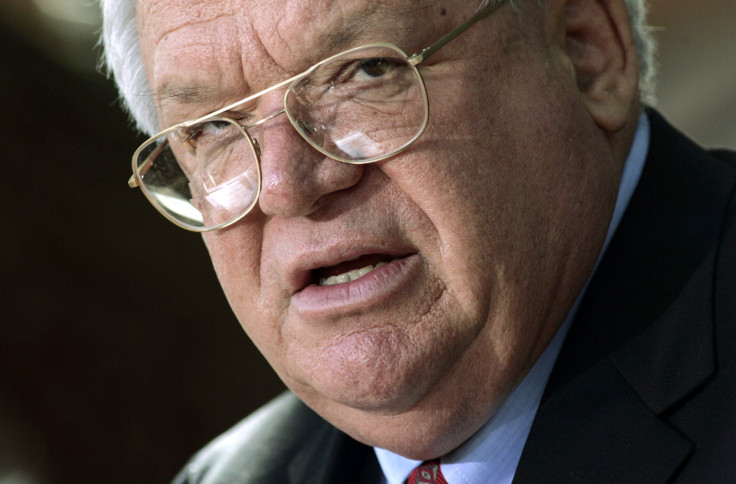Was Former Speaker Hastert Covering Up A Crime?

WASHINGTON -- Questions about whether former House Speaker Dennis Hastert was trying to cover up a crime increased as more details emerged Friday about the circumstances that prompted him to allegedly pay hush money to a man he previously had sexual contact with. The man in question, who officials did not identify but did say had received $3.5 million, was a student of Hastert’s while he was a teacher and wrestling coach, MSNBC reported.
The man told the FBI that he had been “inappropriately touched” by Hastert at the time the former speaker was a teacher, the New York Times reported, citing two law enforcement sources. No reports about the incident have been able to make clear when the sexual contact occurred and whether the man was a student of Hastert’s at the time. The Times reported that the FBI was unable to substantiate the claims by the man but did describe the incident as “sexual abuse.”
The incident began to come to light Thursday when federal prosecutors unsealed an indictment accusing Hastert, a Republican, of conducting illegal bank withdrawals beginning in 2010 in order to pay an unidentified man hush money. The federal charges did not detail what Hastert was trying to keep quiet, but the indictment left some clues when it made clear it was not for anything that the former speaker had done in office. It also made an effort to point out that Hastert was a high school teacher from 1965 to 1981.
Revelations Friday that the unidentified man was a student -- and therefore potentially underage at the time -- has prompted speculation about whether Hastert was trying to cover up a crime or just an embarrassing revelation. While in office, Hastert promoted himself as a defender of child welfare while simultaneously being criticized for delaying the investigation into former Florida Republican Rep. Mark Foley, who left office embroiled in scandal for sending sexually suggestive messages to an underage page. Hastert, 73, is married with two children.
The indictment offered little insight into whether prosecutors thought the activity was in fact a crime. BuzzFeed cited a source saying prosecutors had considered bringing additional charges and detailing incidents with additional “victims” but opted not to. It was clear that they opted not to prosecute Hastert based on those decades-old accusations. But it was also apparent that in charging him, they didn’t view Hastert as the victim in the incident.
Attorney Michael Wildes, a former federal prosecutor, said the government must balance privacy and message when crafting the indictment. “One of the best things of our democratic society and one of the most challenging things for prosecutors is being transparent,” Wildes said.
He said the prosecutor must both make the case and adhere to an assumption of innocence on the part of the accused, complicating the ability to explain all the details in case that is so high-profile. But the nature of the case will likely necessitate that all the details -- including whether Hastert committed a crime -- become public.
“What's happening in this instance will eventually be made public,” Wildes said. “Eventually justice is meted out in a way that is clear to our citizenry.”
Cleveland attorney Dean Valore, a former prosecutor, said there are many reasons that prosecutors might have decided not to say in the indictment whether they thought Hastert was covering up a past crime.
"If they don't have 100 percent certainty, they won't allege it," Valore said. "They won't take a risk." More details, as they become available, could be added to the indictment later, he said.
Because Hastert was a public figure, more precautions might be taken about what is detailed in an indictment. A prosecutor can always come back later and add more information. "What it tells me potentially is they either don't have certainty that a crime has been committed, it may still be alleged or oftentimes they don't want to reveal -- they want to have victims remain anonymous for obvious reasons, so they'll hide that information or reveal it at a later date," Valore said.
Another reason is that the statute of limitations could have expired. Hastert stopped teaching almost 30 years ago, meaning any crime would have had to have been committed before. In that case, prosecutors would likely be unable to try him for those allegations and therefore would have left it out of the indictment, Valore said.
© Copyright IBTimes 2024. All rights reserved.





















